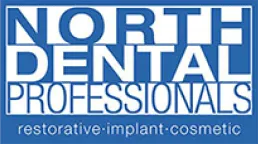Dental technology has evolved significantly over the years, introducing innovative methods to enhance patient care. One of the most notable advancements in recent years is laser dentistry. When used correctly, dental lasers can offer numerous benefits while maintaining safety standards. Understanding the intricacies of laser dentistry, including its benefits and risks, is essential for patients considering this option.

What Is Laser Dentistry?
Laser dentistry involves the use of focused light beams to perform precise dental procedures. Dentists utilize these lasers to target specific areas within the mouth, allowing for a range of treatments, include gum reshaping. Additionally, lasers could effectively treat oral infections and perform biopsies, making them a versatile tool in modern dental care. Furthermore, the use of lasers in dentistry aligns with the growing demand for minimally invasive procedures, which prioritize patient comfort and quick recovery.
The Safety of Laser Dentistry
Safety is a primary concern for both patients and practitioners. Fortunately, laser treatment is generally considered safe when performed by a trained professional. The American Dental Association (ADA) supports the use of lasers in dental treatments, provided that dentists receive specialized training. This training ensures that dentists can operate lasers safely and effectively, minimizing the risk of complications.
Additionally, lasers often result in less bleeding and swelling, which can enhance the overall safety and comfort of the procedure. The ability to sterilize the area during treatment further reduces the risk of infection, a common concern in dental procedures.
Benefits of Laser Dentistry
Laser dentistry offers numerous benefits that can enhance the patient experience. One of the most significant advantages is the reduction in pain. Lasers often cause less discomfort compared to traditional dental tools, which can be particularly beneficial for patients with dental anxiety. The reduced need for anesthesia is another advantage, as it lowers the risk of potential side effects associated with anesthetic agents.
Patients undergoing laser dentistry often experience less bleeding and swelling, contributing to a more comfortable recovery period. The laser’s ability to coagulate blood vessels during treatment minimizes bleeding, while its precision reduces trauma to surrounding tissues. This combination of factors often leads to faster recovery times, allowing patients to return to their daily activities sooner.
The precision of laser dentistry also allows for better preservation of healthy tissue. By targeting only the affected areas, lasers minimize unnecessary removal of surrounding tissue, preserving the natural structure of the teeth and gums. This precision is particularly beneficial in procedures such as gum reshaping, where maintaining the integrity of healthy gum tissue is crucial.
Additionally, laser dentistry could reduce anxiety in some patients. The absence of the traditional dental drill, with its associated noise and vibrations, can be comforting for individuals who experience dental phobia. The quiet operation of lasers creates a more serene environment, contributing to a positive patient experience.
Potential Risks and Limitations
Despite its many benefits, laser treatment is not without potential risks and limitations. Like any medical procedure, the improper use of lasers can lead to complications. Surrounding tissue can suffer damage if the laser is not used correctly, highlighting the importance of proper training and experience for dental practitioners.
Lasers cannot address all dental issues, and traditional methods may still be necessary in certain cases. For example, lasers are not suitable for removing old fillings or treating large cavities. Patients must consult with their dentist to determine the most appropriate treatment method for their specific dental needs.
The cost of laser dentistry can also be a consideration for patients. Laser equipment is expensive, and not all dental offices may offer laser treatments. Patients should inquire about the availability of laser dentistry at their chosen dental practice and consider the potential costs involved. Additionally, insurance coverage for laser procedures may vary, so it is essential to check with your provider to understand what is covered.
Choosing the Right Dentist
For those interested in exploring laser dentistry further, consider visiting North Dental Professionals. Dr. Paul Chaiken specializes in laser dentistry and can provide the information and guidance you need. Contact his office today to schedule a consultation and see if laser dentistry is right for you.
